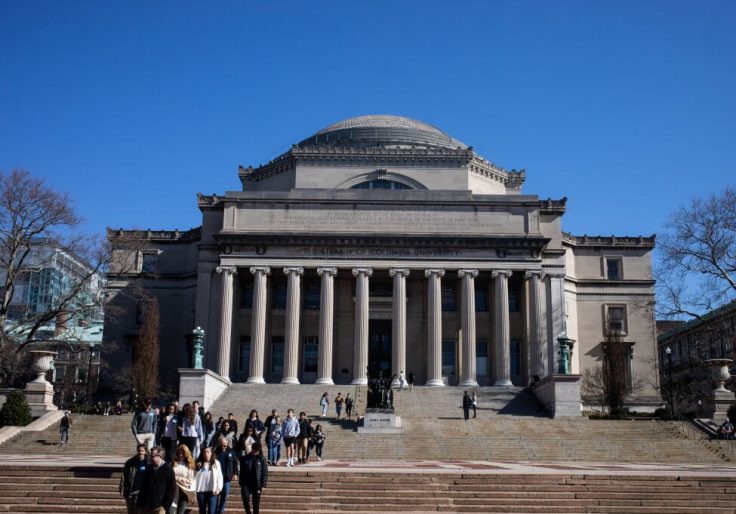The mandatory session featured a former corporate attorney turned diversity consultant who has called on companies to ‘defend DEI’

At a mandatory training for Columbia Law students, a vocally anti-Trump diversity consultant warned that the terms “crazy uncle” and “grandfathering” could be offensive and attacked President Donald Trump for complimenting the president of Liberia on his English, calling the comment a “microaggression.”
The session, audio of which was obtained by the Washington Free Beacon, came in the wake of the Trump administration’s deal with Columbia University, which pledged to mandate anti-Semitism training for all students and faculty. Though a Columbia official said that the training was not intended to meet that obligation, it appears to have been crafted with the deal in mind.
Facilitated by Marguerite Fletcher, a former corporate attorney at WilmerHale, the training was organized around a single “case study” in which a student complains that it is difficult to schedule events around Jewish holidays. In audio of the training, Fletcher—who has wished her clients a “HappyChrismaHanuKwanzakah”—described the complaint as a paradigmatic “microaggression” and encouraged students to list other examples.
When one student mentioned complimenting a foreign person’s English, Fletcher launched into a diatribe against Trump, who in July had praised Liberia’s president, Joseph Boakai, for speaking better English than his own cabinet.
“I know I shouldn’t go political, but our president did that recently to an African president, [the] president of Liberia,” Fletcher said. “‘You speak English better than the people in my office.’ Hmmm… yes, he does.”
Elsewhere in the training, Fletcher argued that lawyers should avoid the term “grandfathering” because of its “racist origins” in the Jim Crow South. And she described how, at a “lawyer well-being group” in Massachusetts, she had been chided for using the term “crazy uncle” because it could stigmatize those with mental health issues.
“I learned from it,” Fletcher recalled. “I’ve never said it again. … If you said something that landed on somebody badly or was inappropriate in some way, wouldn’t you want to know?”
The training at Columbia—where one student, Khymani James, infamously said that “Zionists deserve to die”—did not address the sort of comments that made Jewish students fear for their safety during the anti-Israel protests that prompted the Trump administration to freeze more than $400 million in grants and contracts to the university in March.
A Columbia Law School spokesman said the training was intended to fulfill the accreditation standards of the American Bar Association, which requires law schools to “provide education to law students on bias, cross-cultural competency, and racism” at the start of their legal education. As the Trump administration continues to push for deals with elite universities—Harvard is reportedly considering a $500 million settlement that would restore most of its federal funding—the session offers a window into how even schools seeking to appease the president have continued the DEI programs that he is attempting to destroy.
In exchange for the return of federal funds, Columbia agreed to “maintain merit-based admissions policies,” avoid “unlawful DEI programs,” and promote “open debate.” But Fletcher, who told students that “inappropriate language does cause harm,” has explicitly argued that “you won’t have a true meritocracy without diversity, equity, and inclusion.”
She has also claimed that the Trump administration will “erode our rights” and called on companies to “defend DEI.” In a blog post published in February, she said that she doesn’t alert men when they are entering women’s bathrooms, lest she inadvertently commit a microaggression against transgender people.
“If it was a man, then by saying something I would have helped a stranger avoid momentary embarrassment,” she wrote. “However, if it was a woman, then I would have committed a textbook microaggression. The person was going about their day, and a total stranger made a comment that singled them out as different. Even if my intent was to be helpful, the impact would cause harm.”
















